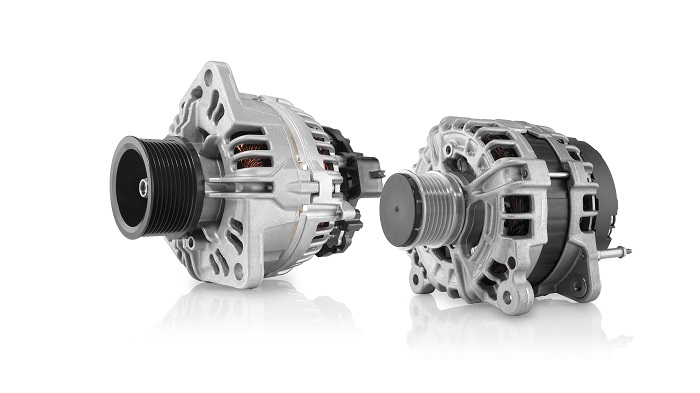You need to know the signs of a bad alternator since alternators are among the vital components of a vehicle. If an alternator fails to operate, soon your car stops working and you’ll need to replace your alternator to use your vehicle again. In this article from Linquip, we will talk about all the signs that show your alternator is not operating correctly, how to test alternators, and bad alternator vs bad battery. Continue reading to become an expert of alternators in no time.
But before we proceed, let’s start by a quick introduction about alternators:
What are alternators?
Alternators are a system used for converting mechanical energy into electricity for charging up a vehicle’s battery and run the electrical system of the car when the vehicle is running. The vehicles that have internal combustion engines use alternators, though some of the hybrids are not in this category.
Signs of a bad alternator
Although alternators are considered to be maintenance-free devices, poor care and not paying attention to the right usage of them, can lead to improper function of the alternator or in some cases, failing of the whole system. With proper care, the alternator can even last up to 15 years!
So, how do you know when the alternator is going bad? Here, we’ll list the most important signs that knowing them will help you find the problems right away to consider repairing or replacing the item.
-
Warning Dash Light
When the warning dash light turns on, it shows that the output of the alternator is either below or above the specified limit. This sign usually looks like a battery in most vehicles. Some cars may also show ALT (alternator) or GEN (generator). The warning light in the cars can indicate an alternator issue. Some people think it’s one of the signs of a bad battery, but it actually refers to the alternator.
One of the tasks of the car’s computer system is to monitor the alternator’s voltage output. The warning light is linked to this system which shows if the output voltage is not right. It remains of if there aren’t any problems with this voltage. This light can sometimes flicker instead of remaining on or light up with the activation of different accessories. In all these cases, something is going on with the alternator.
-
Dead Battery
It’s one of the obvious signs of a bad alternator since it’s the system that charges the battery in your car when the vehicle is running. Although sometimes it can indicate a problem in the starting system too. When the battery is dead, you can’t turn on your car. One of the reasons behind a dead battery could be a bad alternator. Batteries usually help to start up the car and the job for supplying the electricity needed for electrical systems in the vehicle rests on the shoulders of an alternator. So, when the alternator runs into a problem, it may cause the depletion of the battery. To quickly know if it’s the battery that’s dead or the alternator, jump-start the vehicle and quickly remove the jumper cables. Then, if the car runs continuously, the problem is with the battery; but if the alternator fails to charge the system of the vehicle, then the car stops quickly and you need to repair or replace the alternator.
-
Dim or Flickering Lights
Since alternators power up the electrical system of the vehicles, one of the signs of a bad alternator would be electrical problems such as dim lights or flickering lights, or even extreme brightness (frequent dimming, headlight issues, etc.) Plus, the tachometers and speedometers might stop working as well. You’ll eventually experience all of these problems if you don’t find the problem with your alternator, only the order of the experience differs. Some cars have a pre-programmed list, showing the priority of the electricity distribution when the alternator runs into a problem.
-
Slow Electrical Accessories
Different accessories that are dependent on the electricity to run, can show improper function when the alternator has a problem. These accessories can be sunroofs, stereos, etc. When you demand more electricity from the vehicle, it will reveal that your alternator requires repairing.
-
Brighter Light
When the connections of the vehicle are broken or loose, you can take it as another one of the signs of a bad alternator. Your alternator might show no problems when you have it checked, but the dead battery inside the car as well as other electrical equipment should lead you to consider the possibility that even though the alternator is producing the necessary electricity, it’s either not the right type or doesn’t flow to the right outlet. The electricity that the alternator provides, flows through cables and wires and if these connections, and if they face any problems, this flow can either end or reduce. Then, brighter light will be produced to overcome the resistance that the alternator faces in a loose connection or a broken wire. You may also notice the smell of a burning wire with this sign.
-
Bad Alternator Sound
You may hear strange sounds from your vehicle, which could be one of the signs of a bad alternator! Some people might not recognize other signs but this one is pretty obvious and can be easily identified. When the pulley of the alternator is not in the right alignment with the serpentine belt, or when the bushing and bearings are worn out, the alternator starts making strange noises like whining or growling-like noises, and that’s how you’ll know it’s time to check the system.
-
Bad or Loose Belts
There might be a loose or bad belt behind the improper function of an alternator. So, check the belt as well when you see signs of a bad alternator.
-
Bad Smells
As we already mentioned, some problems in the alternator overheat the wires and the alternator, creating a bad smell like when plastic is burning. This indicates that you are overusing the alternator. Most of us know what a hot wire scent or burning rubber scent is like. So, make sure your alternator is not overheating and is not under too much pressure. Keep in mind that it can be a sign not a definite diagnosis for a faulty alternator! Other smells such as burning oil might fill your car that has nothing to do with the alternator!
-
No Charge, Low Charge, or Overcharging
An alternator that has no charge, shows there’s something wrong with the system. Different issues may cause an alternator to stop charging such as missing or loose fan belt, blown fuse or rectifier diodes, break in the wiring, etc.
Other issues such as poor wiring connections or again, loose fan belt, might be the reason behind the low charge. And finally, if your alternator is overcharging, it can be due to a poor battery condition or failed regulator or rotor. You’ll know when it’s overcharging by seeing an overly high voltage of the voltmeter of the car’s dashboard.
This was all the signs of a bad alternator you may face when using a vehicle. Do you have any comments about this article? Then comment below and let us know what you think! And if you are facing any of these signs, sign up on Linquip and our experts help you solve the problem right away!
Buy Equipment or Ask for a Service
By using Linquip RFQ Service, you can expect to receive quotations from various suppliers across multiple industries and regions.
Click Here to Request a Quotation From Suppliers and Service Providers
Read More on Linquip
- Alternator Function: The Complete and Easy to Understand Guide to How Alternators Work
- What Does an Alternator Do?
- Alternator Construction and Design
- Types of Alternator : Features, Advantages, and Vast Usage
- Alternator vs Generator: Your go-to guide to learn their difference
- Alternator Slip Rings : discover the basic purpose and other detailed forms





I have an odd problem that I have had no luck in finding on the internet. New battery installed 5 months ago. The other day I noticed my dashboard voltmeter was bouncing erratically and low. After 15 min of driving, the guage would go to just slightly above were it usually sits. All voltages on my multimeter at the battery were correct for running and off. Today, the dash voltmeter no longer bounces but rather sits very low and then after 15 min of driving, it reads pegged at the top to read 18+ volts. Again, everything is fine at the battery on my multimeter. Could it be the small wire that comes off the neg post that’s attached to the body of the vehicle that is effecting my dashboard guage?